December 1 2020
This last month of the year, and start of winter provides quite an interesting bit of weather and science geek stuff to talk about. This month brings us the winter solstice, which means the longest nights of the year. It also will feature the Great Conjunction of the two largest planets in our solar system not seen in almost 400 years.
We also have other planets to view, and a prime International Space Station Flyover. All that info is posted below. But let’s start with the weather and the sun.
Winter Solstice Sun In Baltimore
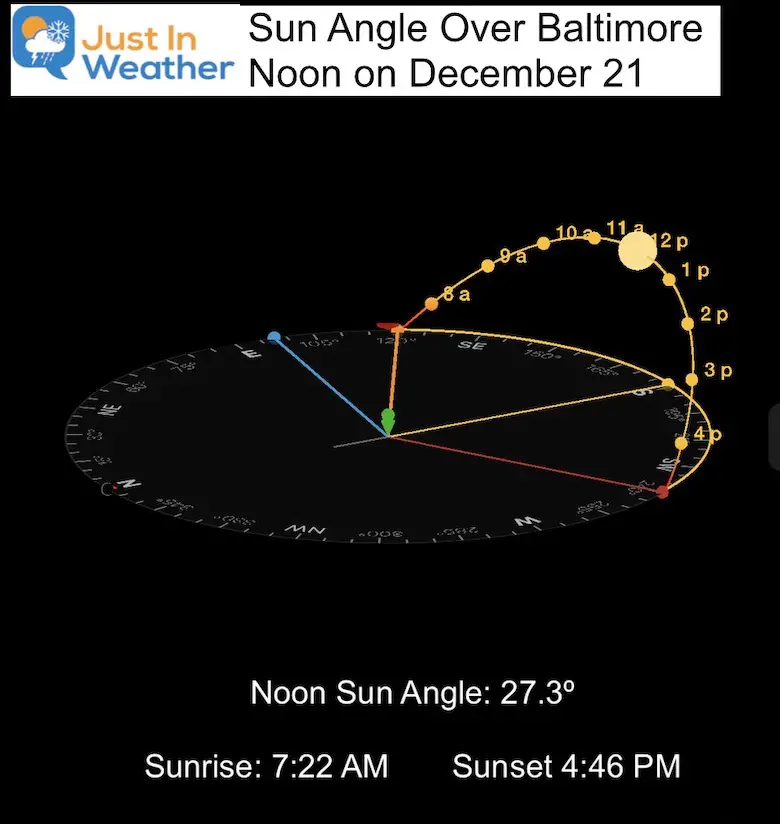
On December 21, the shortest day of the year, this is also the lowest sun angle. But this is NOT the latest sunrise and earliest sunset. It is a strange result of the tilt of our earth, while the sun is rounding the corner on the elliptical orbit. In fact, Earth reaches the closest point to the sun on January 2 (2021). This is called perihelion and we are about million miles closer to the sun than in July. But it doesn’t influence our temperatures.
Latest Sunrise: 7:25 AM on December 27
Earliest Sunset: 4:43 PM on December 1 -14 (about the same for 2 weeks).
Comparing Sun Angle
At Noon on The Winter Solstice, the highest sun angle of the say will be 27.3º above the horizon. This is the same height above the horizon in Baltimore as only 8:15 AM on the Summer Solstice.
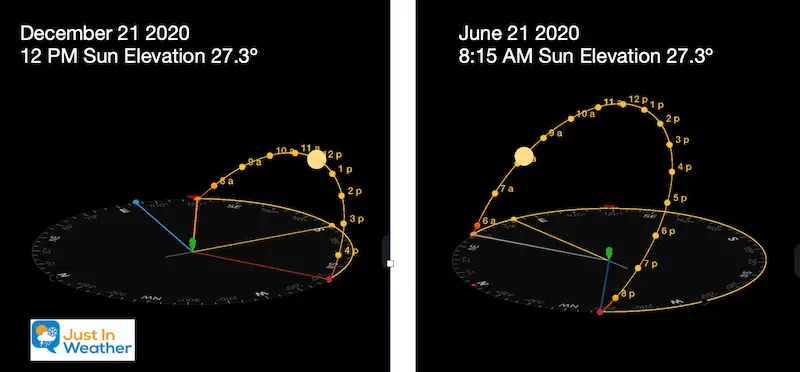
December Weather In Baltimore
Normal High
- 1st = 50ºF
- 31st = 42ºF
Normal Low
- 1st = 32ºF
- 31st = 25ºF
Coldest: -3ºF on December 30 in 1880
Hottest: 77ºF 6th and 7th in 1998; 29th in 1984
Average Snow = 3″
Most Snow = 20.4″ in 1966
*This is a source of debate. The first of three blizzards in the 2009-2010 winter was on December 19, 2009. Originally this was reported to dump 19 inches of snow and the month over was 21″. But NWS revised the snow records downward after the fact. December 2009 is on record now with a second place total of 20.1″
Night Sky Shows
International Space Station Flyovers (Week 1)
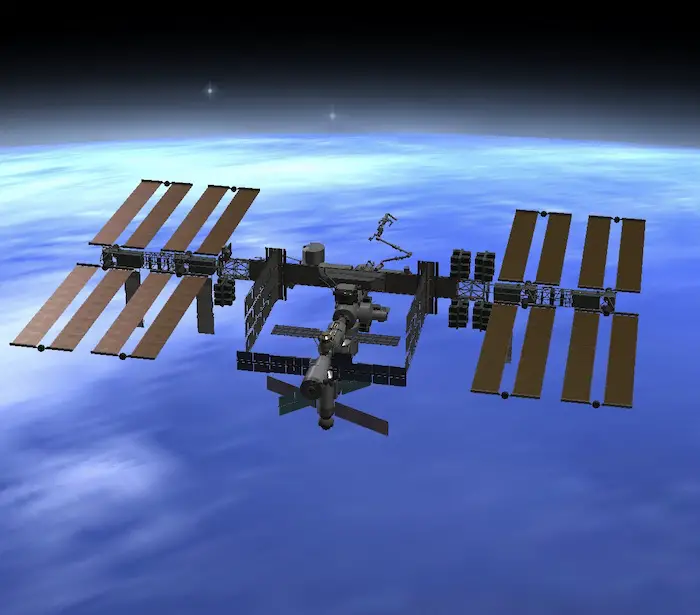
December 6
- 6:34 PM to 6:37 PM
- Elevation 68º = Prime Show!
December 7
- 5:46 PM to 5:52 PM
- Elevation 53º = A pretty good show!
Moon and Planets
The Full moon is called the Cold Moon, and will be at the end of the month. But it will give us a few shows before that.
December 11 to 13:
If you can brave the cold, wake up an hour before sunrise and see the crescent moon with Venus in the East sky.
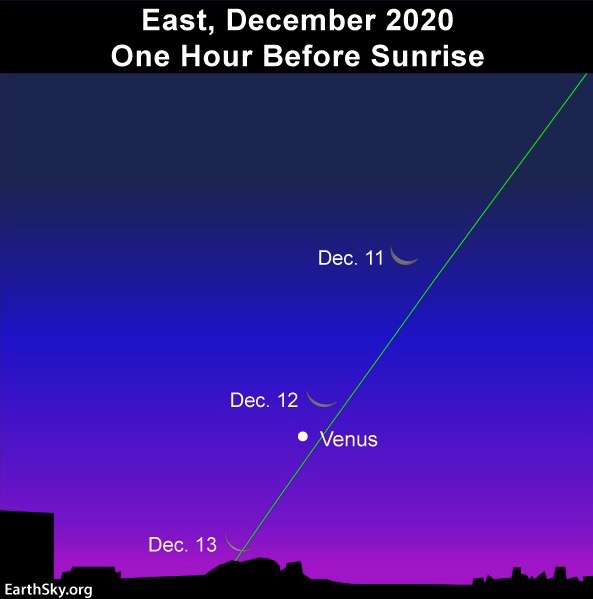
December 16:
The moon will be in the southwest sky in the evening, in view of the approaching Great Conjunction of Jupiter and Saturn.
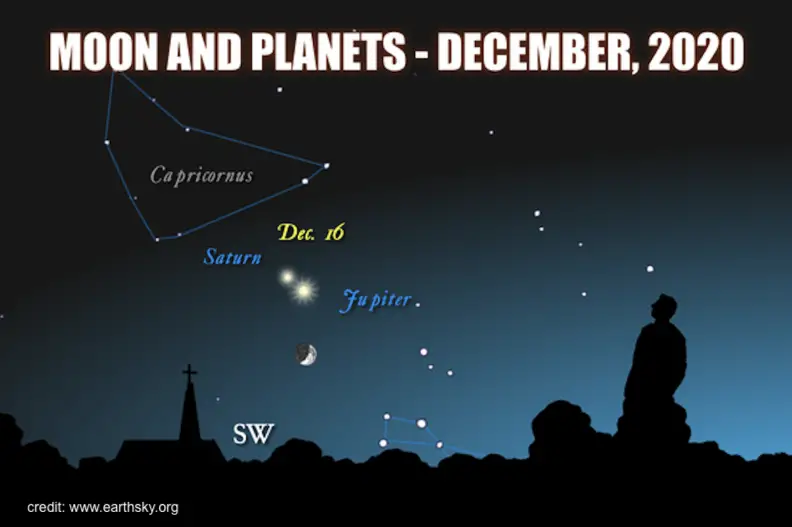
December 21: The Great Conjunction
Jupiter and Saturn will appear the closest in the sky since 1623 when Galileo. That was 14 years after he made his first telescope. \
The separation will be equal to 1/5 of the width of our view of the moon. It might appear as one very bright star, but binoculars or a simple telescope will show them apart.
When/Where To View:
Evening in the southwest, between sunset and 7 PM.
These two planets are already doing their dance in the sky. They will continue to get closer for the first three weeks of the month.
The Full Moon: Cold Moon on December 29th
This is officially on the 29th, but may be listed as the 30th on some calendars. If it is clear, you may not be able to see any difference.
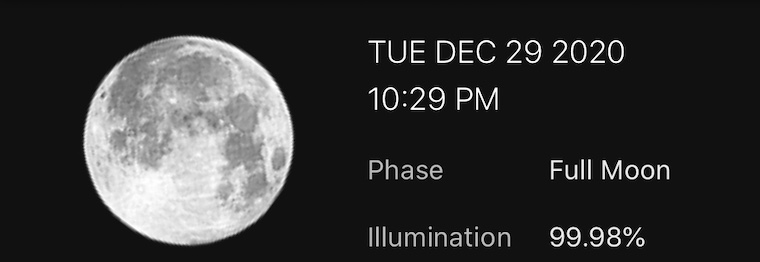
Meteor Showers
Geminid Meteor Shower
- Rate: 50 + per hour
- December 13 to 14
- Look East
- Before Dawn
Ursid Meteor Shower
- Rate: 5 to 10 per hour
- December 22
- Look North-Northeast between the Little and Big Dippers
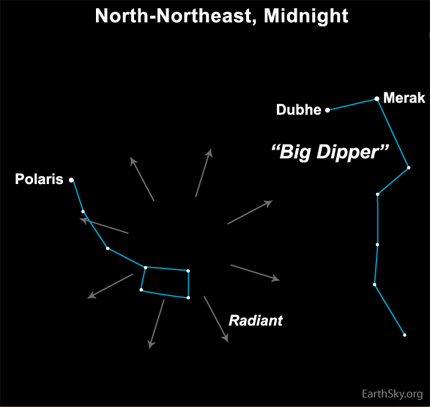
My Final Winter Outlook: Snow Forecast
FAITH IN THE FLAKES STORE OPEN
My ‘bonus’ daughter Jaiden is showing off our popular Maryland Hoodie. Click here to see this and many other new items.
Please share your thoughts, best weather pics/video, or just keep in touch via social media
-
Facebook: Justin Berk, Meteorologist
-
Twitter: @JustinWeather
-
Instagram: justinweather
Email Updates
Please make sure you sign up (above or click here to sign up for email alerts…. ) for my newsletter. This way you will get an email to make sure you are notified of each post.
Just In Power Kids:
A portion of proceeds go to our programs Providing FREE holistic care for kids in cancer treatment and up to 5 years post treatment and caregivers.













